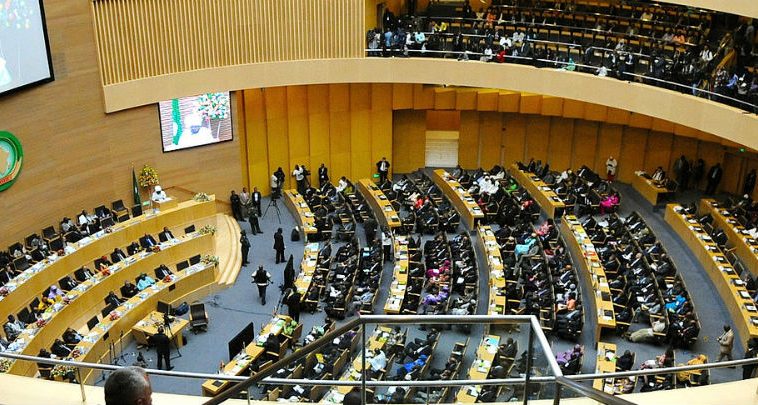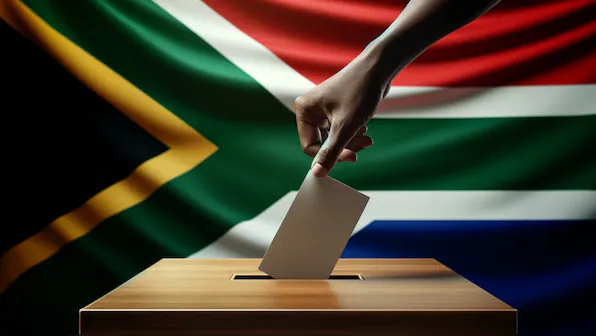Africa and India boast a long-standing relationship built on shared history, cultural connections, and a commitment to South-South cooperation. This partnership has grown significantly in recent decades, transforming into a multifaceted engagement across various sectors.
Historically, the bedrock of the Africa-India relationship is undeniable. Shared experiences of colonialism and a commitment to the principles of the Non-Aligned Movement laid a strong foundation for solidarity and cooperation.
Late Dr Kwame Nkrumah, of blessed memory, played a significant role in fostering this solid relationship. His famous fortnight visit to India in 1958 still goes down as a foundation that laid the groundwork. In his words, “The places and projects I have seen added greatly to my experience and knowledge. I leave India confident in the knowledge that the bonds of family fellowship and goodwill that exist between our two countries have been immeasurably strengthened.”
This statement reflects the historical foundation of the relationship. Both continents emerged from colonial rule, fostering a sense of solidarity and a shared vision for a just international order. Today, the economic dimension reigns supreme and both parties have ripped bountiful benefits.
According to the Observer Research Foundation (ORF), bilateral trade has witnessed an exponential surge, reaching a staggering $90.5 billion in 2022–2023. ADF Magazine states that India’s trade with African nations has grown 18% per year over the last 20 years. It hit $103 billion in 2023. This puts India as the third-largest trading partner for Africa, after the European Union and likely China.
In light of all these, it is pertinent to examine the re-election of Narendra Damodardas Modi and what his third tenure brings to the relationship between Africa and India in the future.
Prime Minister Narendra Damodardas Modi came out victorious after a keenly contested election. The results of India’s general election, held last Tuesday, are being interpreted unusually. While the victors appear sad, the runners-up are jubilant.
The NDA alliance, led by Prime Minister Narendra Modi, has won a record third term in office, with over 290 seats in the 543-member parliament. However, his Bharatiya Janata Party (BJP) alone could not get the necessary 272 seats to form a government, and the prime minister is now regarded as a considerably reduced leader.
As Narendra Damodardas Modi has been re-elected for a third tenure as Prime Minister of India, there is a growing interest in what the future holds for Africa, especially in terms of the investments and development projects that India has been channelling through the African Development Bank (AfDB). Over the years, India has been a key partner for Africa, providing financial assistance, technology transfer, and capacity-building support to help advance the continent’s development goals.
One of the most significant contributions that India has made to Africa is through its investments channelled through the AfDB. According to recent statistics, India has provided a total of $70 billion in investments to fund various public projects across the continent. These investments have been crucial in supporting infrastructure development, agriculture, healthcare, education, and other key sectors that are vital for Africa’s economic growth and social progress.
The re-election of Narendra Modi for a third term in India bodes well for Africa, as it signifies continuity and stability in India’s foreign policy towards the continent. Modi has been a strong advocate for enhancing India-Africa relations, and his leadership has helped strengthen ties between the two regions. With his re-election, we can expect to see a deepening of cooperation and partnership between India and Africa, with a focus on promoting economic growth, enhancing trade and investment, and fostering people-to-people exchanges.
The Confederation of Indian Industry aims to increase India’s economic footprint in Africa to $150 billion by 2030. The Export-Import Bank of India allocates half of its overseas funding, technical aid, and trade to Africa. The Pan African e-Network, Africa’s largest digital project, connects African countries to India and among themselves to share expertise in health care, resource discovery, telecommunications, and other areas.
In addition to financial assistance, India has also been actively involved in supporting Africa’s development through initiatives such as the Pan-African e-Network project, which aims to provide tele-education and telemedicine services to remote areas in Africa using Indian technology. This project has already made a significant impact on improving access to education and healthcare services in several African countries, and with Modi’s re-election, we can expect to see further expansion and enhancement of such initiatives.
According to Indian politician Abhishek Mishra, “India and African countries have travelled a long way from the days of common struggle against colonialism to an evolving and multifaceted 21st-century partnership within the ambit of South-South cooperation framework.”
Furthermore, India has also been a key partner in supporting Africa’s efforts to achieve sustainable development goals, including poverty eradication, gender equality, and environmental sustainability. Modi’s government has been proactive in supporting initiatives that promote clean energy, climate resilience, and environmental conservation in Africa. In 2018, Narendra Modi spelt out his 10-point Kampala Principles before the Ugandan parliament, setting Africa as a top priority for Indian economic and diplomatic investments. So with his re-election, we can anticipate continued support and collaboration in these critical areas.
Kenyan-Indian entrepreneur and investor Aly-Khan Satchu paints a near-perfect picture of what the future holds, in his words, “India’s unique story in Africa gives texture to its strategic engagement.” His story puts him in a unique position as one of Africa’s three million Indian-born nationals, the majority of whom live in East Africa, South Africa, and Ghana. Many people have centuries of roots in these nations and identify as African, but they still have deep family or trade ties to India. African-Indians contribute significantly to Africa’s education and healthcare institutions, as well as politics and the military.
Overall, the future looks promising for Africa as Narendra Modi embarks on his third term as Prime Minister of India. With his strong commitment to enhancing India-Africa relations, combined with India’s substantial investments and support for Africa’s development, we can expect to see continued progress and prosperity for the continent in the years to come. Africa stands to benefit greatly from India’s partnership and assistance, and with Modi’s leadership, the potential for growth and transformation in the region is indeed bright.


